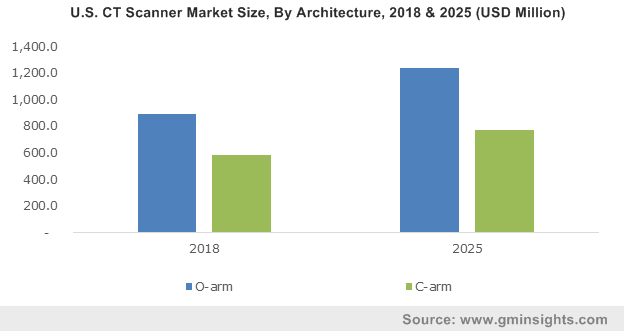Unveiling CT scanner market with regards to the end-use landscape: hospitals to emerge as one of the most profitable growth avenues over 2017-2024
Publisher : Fractovia | Published Date : 2018-06-12Request Sample
As early disease diagnosis gains precedence, healthcare verticals such as CT scanner market have been witnessing a massive growth rate. Renowned medical care service providers have been heavily investing in brainstorming advanced CT scanners to diagnose diseases more effectively than ever, thereby expanding the product portfolio of this industry. Driven by the need to make healthcare affordable to all and sundry, regulatory bodies are also encouraging giants in CT scanner industry to manufacture technologically advanced products. In U.S. for example, with the regulatory support of the Food and Drug Administration (FDA), many technology companies have taken initiatives to develop a technologically sound product portfolio of CT scanners.
Germany CT Scanner Market, By Technology, 2013 – 2024 (USD Million)

Heavy spending by hospitals in next-gen diagnostic facilities to stimulate CT scanner industry trends
Hospitals call for the most pivotal place among the end-users of CT scanner market. Most of the therapeutic and diagnostic procedures that hospitals carry out on a daily basis demand the requirement of CT devices. As the number of diagnostic procedures in hospitals continue to witness an escalating graph alongside the growing awareness regarding early disease detection, the demand for these scanners in hospitals will continue to escalate, augmenting CT scanner market share from hospitals.
Having recognized the pivotal need for CT devices, numerous hospital operators have been taking initiatives to arrange for appropriate funding and enhance medical infrastructure. A few instances of how hospitals have been rapidly contributing toward increasing the valuation of CT scanner market have been outlined below:
Merely a few days earlier, one of the Australia-based healthcare service providers, Geraldton Hospital received funding of $83.5 million from the State Budget announced for healthcare sector. The Geraldton Hospital is looking forward to utilizing this funding to buy new CT scanners worth $500,000 over the coming three to six months. The hospital has also received $10.2 million for the off-campus 10-bed mental health facility and plans to focus on the redevelopment of existing infrastructure to provide modern healthcare facilities to patients. As state and federal governments continue to provide funding for the upgradation of existing infrastructure, the commercialization potential of CT scanner market size is expected to increase commendably.
The rising availability of technology advanced products has been luring many hospitals to invest in new equipment purchase. The growing awareness among the hospitals about the clinical benefits of advanced MRI equipment for instance, as compared to conventional products is also turning out to be revenue generating opportunity for the giants in CT scanner market. Validating the above-mentioned fact, in May 2018, Leighton Hospital decided to expand its current capacity of CT scanners and now plans to spend £1.5 million to purchase an advanced-version CT scanner. The continuous investment in advanced product buyouts by hospitals is certain to provide an impetus to CT scanner market players.
The advent of new technologies such as machine learning and AI have been revolutionizing the healthcare sector of late, as they are specifically used in medical equipment that need to provide precise and accurate results. Scientists have also been tapping these technologies to reduce the severity of diseases such as stroke, cancer, and dementia with early diagnosis. A few days ago, researchers from the Edinburgh University and the Imperial College, London developed a new software to diagnose the causes of dementia and stroke. Apparently, this is an industry first, where scientists have been able to successfully measure the markers of chronic diseases with the help of digital technology. Though traditional CT scanners can measure and detect small vessel disease (SVD) more effectively, it is not easy for doctors to detect the severity of some diseases related to delicate organs such as eyes. The aforementioned limitation could be overcome with the advent of automated technology, which would prove to transform CT scanner market outlook.
Hospitals across myriad geographies intend to harness the latest technology to provide the best possible care for patients. Armed with such intensive goals, most of the hospitals are frequently acquiring innovative imaging technology solutions on a large scale. The Nicklaus Children’s Hospital, based in Florida, recently acquired a CT scanner from NeuroLogica, which subsequently develops diagnostics solutions for healthcare service providers. With the acquisition of this product, Nicklaus Children’s Hospital seems to have successfully improved its workflow efficiency.
The consistent advancements in product development in tandem with the demand for these devices from hospitals, ambulatory surgical centers, and CROs will have a remarkable influence on CT scanner industry trends over the years ahead. As the deployment of advanced medical equipment in renowned hospitals and medical care organizations continues to incline, CT scanner market share is expected to spiral upward. As per estimates, CT scanner industry size is forecast to be pegged at USD 7 billion by the end of 2024.